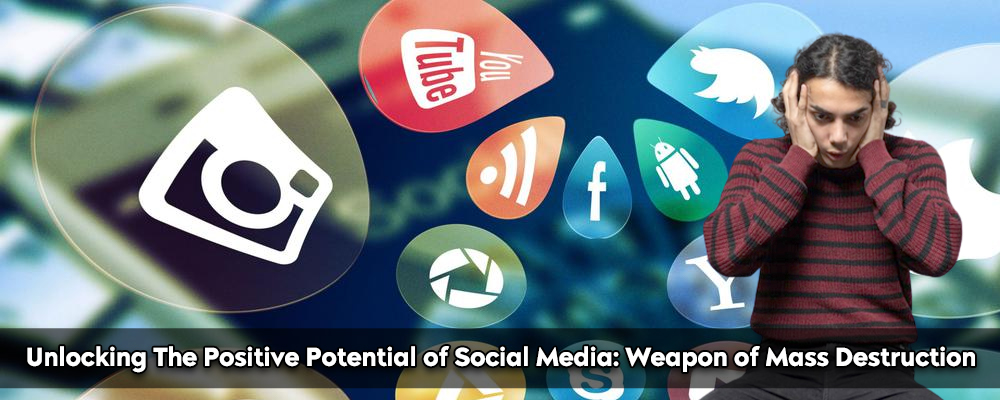Social media has become an instrument of mass distraction. It presents significant issues in the digital age, where information moves at the pace of light and attention spans are getting shorter by the minute. Social media platforms, which were previously hailed as channels for information distribution and worldwide connectivity, are now being criticized for their part in deflecting attention and promoting distractions.
Need A Legal Advice
The internet is not a lawyer and neither are you. Talk to a real lawyer about your legal issue

Influence of Social Media
- Unquestionably, social media sites have changed the way we engage with one another and the rest of the world through communication and information sharing. People now have a voice due to these platforms, which allow them to connect with people around the world and express their thoughts and experiences.
- Social media can be transformative, but it also comes with a lot of difficulties. The tendency for distraction is one of the most urgent issues. Social media has become a haven for distraction due to the continual barrage of notifications, carefully selected material, and addictive features aimed to keep users engaged.
Role of Judiciary: Bombay High Court
- Social media was referred to as a “weapon of mass distraction” by the Bombay High Court during an argument on a public interest litigation (PIL) involving the control of online material and misinformation. The court raised worries about social media’s addictive qualities and its propensity to draw attention away from important issues.
- Efficacy of the Statement It is important to recognize the court’s contribution to addressing societal challenges, even though some may contend that the court’s remark is too critical. The finding serves as an indication that although social media has clearly had many advantages, there are also negative aspects that need to be taken into consideration.
Significance of the Mechanism of Distraction
- Platforms for social media use function under what is frequently described as the “attention economy.” Companies compete for consumers’ scant attention spans in the current digital environment in order to make money through adverts and engagement analytics. Platforms are therefore motivated to create features that capture and retain the interest of consumers for as long as they can.
- Social media feed algorithms are a major contributor to the persistence of distraction. They provide higher priority to content that is more likely to engage users, which frequently results in the formation of echo chambers as users are exposed to material that supports their pre-existing interests and beliefs. This frequent reiteration of one’s worldview might serve as an additional diversion from more comprehensive viewpoints and problems.
Getting through the Social Media Distraction
- People need to gain media literacy skills to counteract the distraction that social media causes. Users who are media literate are better able to evaluate internet material critically and differentiate between reliable sources and false information. For schools and organizations, teaching the use of digital media should be a top focus.
- Social media websites have a big part to play in reducing distraction. They can put in place features like time limitations and customizable notifications that promote careful usage. Additionally, individuals can make intelligent judgments about their media consumption with the aid of transparency in content filtering and algorithmic decisions.
- The possibility of distraction from social media should be taken into account when governments and regulatory agencies are developing rules. These rules ought to achieve a compromise between safeguarding the right to free speech and minimizing the harmful effects of undue distraction.
Social Media and its Benefits
- While social media serves as a diversion, it can also act as an effective instrument for advocacy and empowerment. It raises awareness of important social concerns and sparks change in the world.
- The sharing of information on social media is important, especially in times of emergency. It offers a platform for quick collaboration and communication by assisting communities in crisis response and sharing real-time updates.
- Global connectivity which is fostered by social media makes it possible for cross-cultural interactions and relationships. It makes it possible for people from all over the world to connect, exchange ideas, and collaborate on projects.
Conclusion
The Bombay High Court’s ruling serves as an unsettling reminder of the challenges these platforms present. Social media clearly has many advantages, but it’s important to understand and minimize its distraction-causing potential. To achieve a balance that exploits social media’s advantages while minimizing its drawbacks, people, social media corporations, and governments must collaborate.
One can talk to lawyer from Lead India for any kind of legal support. In India, free legal advice online can be obtained at Lead India. Along with receiving free legal advice online, one can also ask questions to the experts online free through Lead India.



